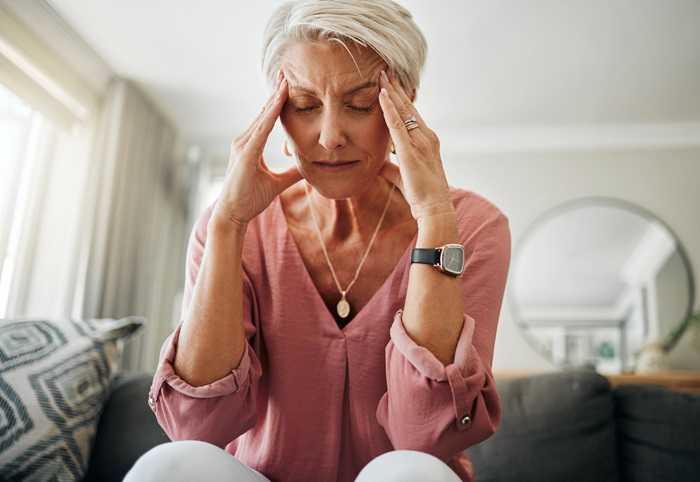Posted by Laura Sheath
Will WASPI women get compensation in 2024?
After SIX YEARS of campaigning and an in-depth investigation, the Parliamentary and Health Service Ombudsman (PHSO) concluded on March 21 that women born in the 1950s, affected by short notice changes to their State Pension age, should be compensated.
Now, the WASPI women wait to see whether the Department for Work and Pensions (DWP) will agree with the conclusion and eventually pay out.

Who are WASPI?
WASPI (Women Against State Pension Inequality) is a campaign group formed by a group of women born in the 1950s who were negatively affected by the changes to the State Pension age. The group represents the 3.8 million women in the UK who were born in the 1950s.
These women feel they were not adequately informed about the changes or given enough time to plan for their retirement. As a result, they are now facing financial difficulties and are campaigning for fair compensation.
Women have worked and then died without a pension
Since 2015, over 270,000 women have died having never received the pension they had worked for.
According to WASPI, that’s saved the treasury over £4,074,825,000 and counting.
Why did the State Pension change affect WASPI women so badly?
The issue for these women is that they were given very little notice of the changes to the State Pension age. Many of them had already retired or were planning to retire at 60, only to find out that they would not be eligible for their State Pension until they were 66.
This meant they had to find alternative sources of income to support themselves for an additional six years. Some say they received only 12 months’ notice of a six-year delay to their pension.
For many of these women, this has been a significant financial burden that's caused relentless stress.
They have had to rely on their savings or their partner's income to make ends meet which has left them vulnerable to financial coercive control and a loss of independence.
Some have had to take on part-time work to supplement their income or claim benefits such as PIP or Universal Credit. All of this has had a significant impact on their quality of life and their ability to enjoy their retirement.

WASPI women have gone without vital care services
Without their pensions, many women have struggled without care services that could have otherwise helped them lead independent, happy lives.
Home care services typically support many older adults, providing domestic help, assistance with medication administration, companionship and help with mobility issues.
However, many women simply have not been able to afford home care and have therefore gone without, which arguably has affected their quality of life.
What are WASPI doing to raise awareness and try to get compensation?
WASPI is working tirelessly to raise awareness of the issue and to put pressure on the government to provide fair compensation to those affected.
They have held numerous rallies and protests across the country, and have also lobbied MPs and other politicians.
Their efforts have not gone unnoticed, and there have been ongoing discussions and campaigns to raise awareness about the impact of the changes to the State Pension age on these women and to push for compensation.
How much could WASPI women be compensated?
The Parliamentary and Health Service Ombudsman (PHSO) has recommended compensation for those affected, with suggested pay outs of £1,000 to £2,950 per person.
This is significantly lower than the £10,000-plus asked by the WASPI campaigners.
If all women born in the 1950s were to be compensated, the total bill could still end up being in the billions of pounds, amounting to more than £10bn.
While the ombudsman has urged the government to pay compensation, the Department of Work and Pensions (DWP) has indicated it will not comply. As a result, the PHSO is seeking parliamentary intervention, a rare but necessary step.
The recent State Pension payment increase isn’t enough to help the WASPI women
In April 2024, the State Pension payment increased by 8.5% in line with inflation.
While this is good news for those who are eligible for the State Pension, it is unlikely to be enough to make up for the financial difficulties faced by WASPI women and women in general, who typically receive a lower pension income than men because of gaps of employment or reduced working hours as a result of motherhood.
Financial support: Retired vs not yet retired
Different benefits and financial support differ depending on whether you’ve reached the State Pension age in the UK yet.
See the table below to find out what financial support you could be entitled to.
| Retired | Not yet retired |
|---|---|
| Attendance Allowance: This is a tax-free benefit for people over 65 who need help with personal care. It is not means-tested, so you can claim Attendance Allowance regardless of your income or savings. | Personal Independence Payment: Having a long-term illness or disability can affect your income. If you're under State Pension age PIP could pay you a little extra money to help you pay for things. |
| Pension Credit: Pension Credit is a benefit for people over State Pension age which tops up your income if you're struggling to make ends meet. It comes in two parts: Guarantee Credit and Savings Credit. | Universal Credit: If you're on a low income or you're out of work, you might be able to claim Universal Credit to help you cover your living costs. |
| Council Tax reduction: If you're on a low income or receive certain benefits you can get help from your local council when paying your Council Tax bill – this is known as Council Tax Support or Council Tax Reduction. | Carer’s Allowance: If you care for someone you could be entitled to some extra money each week You don’t have to be related to the person you care for, or live with them but often unpaid carers include spouses, siblings, children, neighbours and friends. |
| Council Tax reduction: If you're on a low income or receive certain benefits you can get help from your local council when paying your Council Tax bill – this is known as Council Tax Support or Council Tax Reduction. | Carer’s Allowance: If you care for someone you could be entitled to some extra money each week You don’t have to be related to the person you care for, or live with them but often unpaid carers include spouses, siblings, children, neighbours and friends. |
Will the government listen to WASPI women and provide compensation?
It looks uncertain but WASPI continue to push for the matter to be discussed in parliament.
The issue of compensation for WASPI women is a complex one and it depends on various factors.
Although there have been calls for compensation, the government has not yet committed to providing it.
However, there are ongoing discussions and campaigns to raise awareness about the impact of the changes to the State Pension age on these women and to push for compensation. It remains to be seen what the outcome of these efforts will be.
The latest update
The DWP will address the issue at the "earliest possible opportunity" but with no date provided, the WASPI women continue to raise the issue by patiently yet persistently protesting.
Are you worried about paying for your care?
If you're planning care for the future or if you need care services now and want to talk to someone call Autumna on 01892 335 330. Our team can listen to what you need, help you find the care services in your local area and discuss the options around paying for care.






